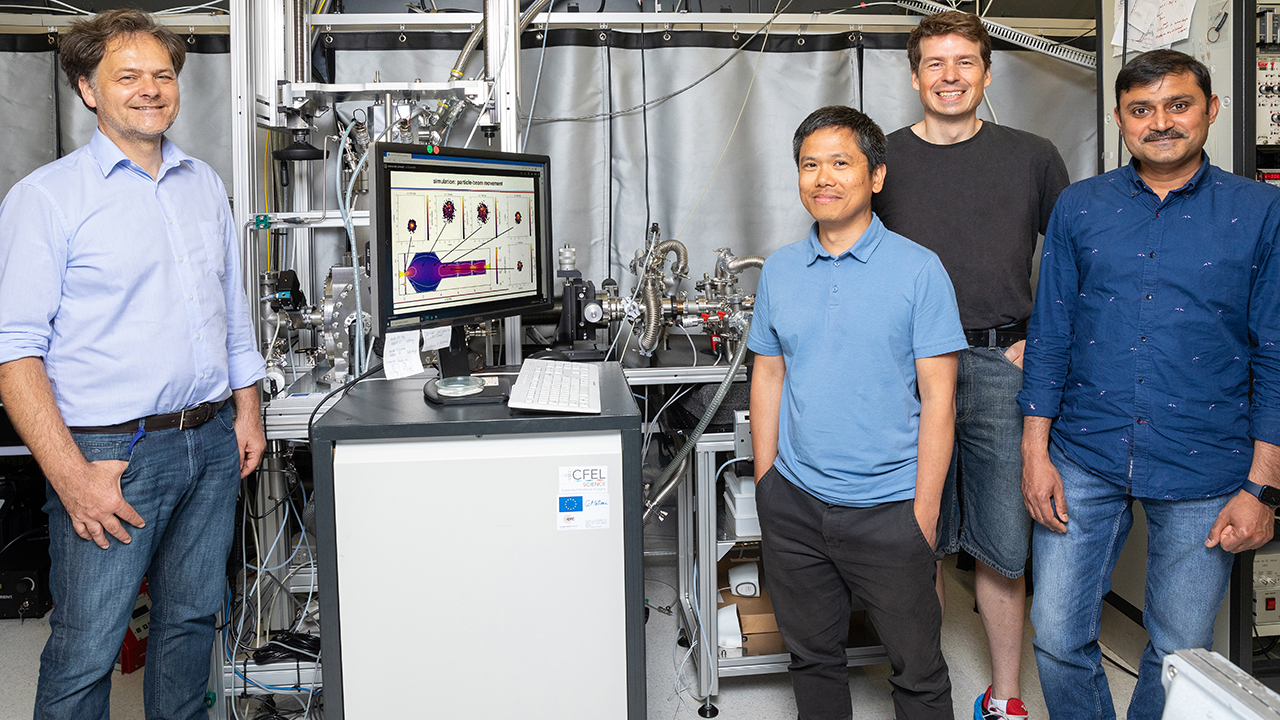New approach to speed up cryo-EM
A new sample preparation technology, “freeze-and-deposit”, for cryo-electron microscopy has received funding for the validation phase.
A novel method “freeze-and-deposit” for preparing samples for cryo-electron microscopy has been researched by DESY’s Controlled Molecule Imaging (CMI) group led by Jochen Küpper at the Center for Free-Electron Laser Science (CFEL). In the next phase of research and validation of the technology concept, which receives funding from the Helmholtz Association, CMI will collaborate with scientific partners from the University Hospital Hamburg-Eppendorf (UKE) at the Centre for Structural Systems Biology (CSSB), which is located on the DESY campus, as well as an industry partner. The goal is to accelerate the transfer of this innovative and promising technique within a practical use-case environment.
Researchers use cryo-electron microscopy as an imaging technique to examine biological samples down to the atomic scale. Thanks to this technology the determination of biomolecular structures has taken a leap forward. This characterization, for instance, plays a vital role in the development of new medicines and tracking the evolution of molecular organisms such as viruses. Thanks to ever evolving microscopes, this method has made enormous progress in recent years. Today, more than 200 institutions from science and industry worldwide are already working with the cryo-EM technology. And the number is growing.
However, further progress requires accelerating and optimization of sample preparation to keep pace with the rapid developments in the field. So far, the standard is to place a sample on a metal grid and then freeze it at around minus 150 degrees Celsius. This is required to achieve a better atomic resolution than would be possible at room temperature using non cryo-EM techniques. According to the group's studies, the novel approach exhibits the potential to not only significantly speed up the sample preparation process, but also enable more atomic-resolution imaging in general with its applicability to a wider range of samples and faster throughput.
The partners in this validation project ensure that the development will not only enable excellent basic and applied research, but also meet the other market requirement, such as optimal handling in laboratory settings. The Helmholtz Association has approved 725,000 Euro from its initiative and networking fund for this project, which has a total runtime of two years.
published
- 2023/10/04
Press Contact
- innovation@desy.de


